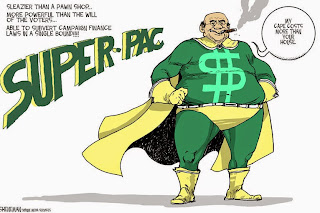US trade officials pushed EU to shelve action on endocrine-disrupting
chemicals linked to cancer and male infertility to facilitate TTIP free
trade deal.
EU moves to regulate hormone-damaging chemicals
linked to cancer and male infertility were shelved following pressure from US trade officials over the
Transatlantic Trade and Investment Partnership (TTIP) free trade deal, newly released documents show.
Draft EU criteria
could have banned 31 pesticides
containing endocrine disrupting chemicals (EDCs). But these were dumped
amid fears of a trade backlash stoked by an aggressive US lobby push,
access to information documents obtained by
Pesticides Action Network (PAN) Europe show.
On 26 June 2013, a high-level delegation from the American Chambers
of Commerce (AmCham) visited EU trade officials to insist that the bloc
drop its planned criteria for identifying EDCs in favour of a new impact
study.
Minutes of the meeting show commission officials pleading that “although they want the
TTIP to be successful, they would not like to be seen as lowering the EU standards”.
The TTIP is a trade deal being agreed by the EU and US to remove barriers to commerce and promote free trade.
Responding to the EU officials, AmCham representatives “complained
about the uselessness of creating categories and thus, lists” of
prohibited substances, the minutes show.
The US trade representatives insisted that a risk-based approach be
taken to regulation, and “emphasised the need for an impact assessment”
instead.
On 2 July 2013, officials from the US Mission to
Europe
visited the EU to reinforce the message. Later that day, the
secretary-general of the commission, Catherine Day, sent a letter to the
environment department’s director Karl Falkenberg, telling him to stand
down the draft criteria.
“We suggest that as other DGs [directorate-generals] have done, you
consider making a joint single impact assessment to cover all the
proposals,” Day wrote. “We do not think it is necessary to prepare a
commission recommendation on the criteria to identify endocrine
disrupting substances.”
The result was that legislation planned for 2014 was kicked back until at least 2016, despite
estimated health costs of €150bn per year in Europe from endocrine-related illnesses such as IQ loss, obesity and
cryptorchidism – a condition affecting the genitals of baby boys
.
A month before the meeting, AmCham had warned the EU of
“wide-reaching implications” if the draft criteria were approved. The
trade body wanted an EU impact study to set looser thresholds for
acceptable exposure to endocrines, based on a substance’s potency.
“We are worried to see that this decision, which is the source of
many scientific debates, might be taken on political grounds, without
first assessing what its impacts will be on the European market,” the
chair of AmCham’s environment committee wrote in a letter to the
commission. These could be “dramatic” the letter said.
In a high-level internal note sent to the health commissioner, Tonio
Borg, shortly afterwards, his departmental director-general warned that
the EU’s endocrines policy “will have substantial impacts for the
economy, agriculture and trade”.
The heavily redacted letter, sent a week before the EU’s plans were
scrapped continued: “The US, Canada, and Brazil [have] already voiced
concerns on the criteria which might lead to important repercussions on
trade.”
The series of events was described as “incredible” by the the Green
MEP Bas Eickhout. “These documents offer convincing evidence that TTIP
not only presents a danger for the future lowering of European
standards, but that this is happening as we speak,” he told the
Guardian.
A commission spokesperson insisted that health and environmental
concerns would be fully addressed, despite pressure from industry or
trade groups.
“The ongoing EU impact assessment procedure is not linked in any way
to the TTIP negotiations,” the official said. “The EU will proceed to
the adoption of definitive criteria to identify endocrine disruptors,
independently from the further course of our TTIP negotiations with the
US.”
Note EU-Digest: "
the statement by the commission spokesperson on the issue, however, does not sound very convincing"
Read more: EU dropped pesticide laws due to US pressure over TTIP, documents reveal | Environment | The Guardian

















